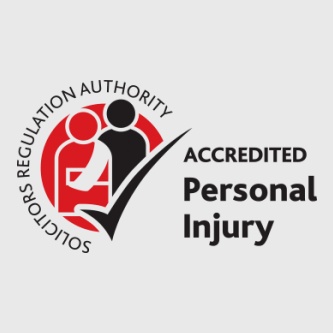Court of Protection
Our Court of Protection team sits within our group firm Fletchers Solicitors who are highly experienced in looking after people who need support managing their finances.
After suffering a serious injury, many people need some professional support to manage their financial affairs. Injuries such as traumatic brain injury, or conditions including cerebral palsy, may limit mental capacity and function to the extent that life-long help is required. If someone you care for is in this position, the leading Court of Protection team at Fletchers Solicitors will help you.
Our team provides clients with a very close, personable yet professional service that always has your best interests at heart. Our team manages client finances in a collaborative manner so that the injured person and their family are up to date and have peace of mind about the future. We help with any aspects of their affairs as and when necessary. This may include claiming benefits, property rental or purchase, support worker employment, investments, tax planning, and more. We take pride in helping clients to live as comfortably as possible after injury, and to provide them with long-term security.
What is the Court of Protection?
The Court of Protection is a specialist court, dedicated to making decisions on financial or welfare matters for people who cannot make those decisions for themselves (they ‘lack mental capacity’). Its purpose is to protect vulnerable people by helping them with important issues such as their finances, property, health and welfare. The main ways that the Court of Protection can provide help are:
- It can assess whether or not a person has the mental capacity to make his or her own decisions in a range of areas. Mental capacity is not al or nothing and the Court of Protection will consider what decision actually has to be made.
- The Court can make one off decisions on behalf of a person who lacks capacity, for example about where they should live or if they should have a particular medical treatment.
- It can appoint another person, known as a deputy, to have the responsibility of looking after the property and affairs of a person who lacks capacity to do so themselves.
- By making decisions about a lasting power of attorney or enduring power of attorney and considering any objections to their registration, or the actions of an attorney.
- By considering applications to make statutory wills or gifts on behalf of a person who lacks mental capacity.
- In making decisions about when someone can be deprived of their liberty under the Mental Capacity Act.
Who needs a deputy?
Those who require assistance from a deputy are described as “people who lack capacity to make decisions for themselves” (Mental Capacity Act 2005). It is important to make clear that this is not an umbrella term that only takes into account people who are unable to make any decisions at all. For example, it is quite possible for a person to be able to make small decisions about everyday issues such as shopping for groceries or going to the cinema, but at the same time they may lack the capacity to make decisions about more complex issues such as long-term financial planning.
Every person, accident and injury is different. Whilst one person with a head injury may always lack the capacity to make certain types of decisions, it does not mean that all people who suffer from a similar injury will be in the same position. In fact, others may learn new skills and become able to make decisions for themselves again.
The decision to appoint a deputy is made by the Court of Protection. Where there is evidence that a person may lack capacity to manage their property and affairs without support the Court of Protection will consider the evidence and decide if a Deputy should be appointed. Where a deputy is appointed, they have a duty to review the mental capacity of the person they act for and to ask the court to end the deputyship if there is evidence that the individual has re-gained capacity to manage their own property and affairs.
Who can be a deputy?
Anyone over the age of 18 can apply to become a deputy. Most commonly, this is a friend or relative of the incapacitated person. The person wishing to be appointed must be able to meet the Court’s requirements – having financial difficulties and criminal convictions, for example, will mean that the Court will refuse to appoint a person. Only the Court of Protection can appoint someone as a deputy. It is important that the Court makes this decision, because in some cases it may be neither appropriate nor suitable for, say, a friend or relative to be appointed. For example, it may be clear to the Court of Protection that that the friend or relative may not have the individual’s best interests at heart.
In other cases, a friend or relative may not have the time or capability to take on the role of deputy. Dealing with the Court of Protection can be a long process, and some of the decisions that the deputy may be required to make can be extremely complicated. In cases where there is high value litigation the Court will prefer to appoint a professional deputy for the added security and expertise they will bring.
Alternatively, it could be that the deputy may be required to make important decisions that involve large sums of money and may feel somewhat overwhelmed and lacking in confidence due to the risk involved in making investments. For some people, especially those with no prior experience of the Court of Protection, this may prove difficult. There are two possible solutions:
- The Court of Protection can appoint a ‘professional deputy’, who will usually be a lawyer.
- An appointed deputy can seek assistance from an experienced Court of Protection lawyer who can provide sound knowledge, guidance and advice.
If you are in this situation, the dedicated specialist from Fletchers Solicitors Court of Protection Team that can help you.
The role and authority of a deputy
The role of a deputy is an extremely important one. All deputies must follow the Deputy Standards set out by the Office of the Public Guardian. These include that a Deputy:
- Must always act in the best interests of the person who lacks capacity.
- Should not make a decision on behalf of the protected party if they believe the protected party can make the decision themselves.
- Should always seek the views and wishes of the protected party and their family and loved ones before making a decision (where capacity and circumstances permit).
- Must take an interest in the welfare of the person they act for and meet with them in person at least once each year.
- Will always keep under review the extent of the authority ordered by the Court of Protection
- Will always keep under review the capacity of the protected party.
- Cannot make large gifts out of the protected party’s money or property unless permitted to do so by the Court of Protection.
- Cannot make a will on behalf of the protected party except where the Court of Protection specifically authorises a will.
What is a Court of Protection order?
Once a deputy has been appointed to help a protected party who lacks mental capacity, the Court of Protection issues an order to them that states their exact powers, authority and responsibilities.
The order will:
- State that the deputy must apply the principles set out in section 1 of the Mental Capacity Act 2005 (as described below) and act in line with its Code of Practice.
- Detail the extent and limit of the deputy’s powers and responsibilities.
- Specify that the deputy’s decisions are made in the protected party’s best interests.
- Require the deputy to report to the Office of the Public Guardian each year.
- Ensure that the deputy puts in place a bond of insurance to safeguard the protected party at all times.
- State that the deputy must seek independent advice before making any investments.
- Set out whether or not the Deputy may buy or sell property on behalf of the person they act
- Attend to the financial needs of the same people that the protected party would – for example their immediate family.
- Advise that the deputy is allowed to ‘make gifts’ on behalf of the protected party, such as for birthdays and anniversaries, or perhaps charitable donations.
What is the Office of the Public Guardian?
Deputyships are overseen by the Court of Protection and an executive agency sponsored by the Ministry of Justice called the Office of the Public Guardian (‘OPG’). Each year deputies must report to the OPG with details of all financial transactions and major decisions made on behalf of the protected party. This is a very important process, because to prove that all deputies are acting in the best interests, the OPG needs to know the following information:
- What decisions have been made on behalf of a protected party.
- The reasons for making the decisions.
- Details of all the people consulted before making the decisions.
- Any other factors in the process of the decision-making, for example any conflicts of opinion with consultants or even with the protected party themselves.
The principles of the Mental Capacity Act 2005
All people should apply the following five core principles of the Mental Capacity Act 2005 when undertaking their deputyship:
- A person must be assumed to have capacity unless it is established that he lacks capacity.
- A person is not to be treated as unable to make a decision unless all practicable steps to help him to do so have been taken without success.
- A person is not to be treated as unable to make a decision merely because he makes an unwise decision.
- An act done, or decision made, under this Act for or on behalf of a person who lacks capacity must be done, or made, in his best interests.
- Before the act is done, or the decision is made, regard must be had to whether the purpose for which it is needed can be as effectively achieved in a way that is less restrictive of the person’s rights and freedom of action.
Our Court of Protection and Professional Trustee team
Fletchers Solicitors Court of Protection team are responsible for looking after the affairs of many vulnerable people who lack mental capacity after serious injury or due to illness. We are also often appointed as professional trustees to help people who have capacity but still require assistance. For example, where a child is awarded significant compensation for an injury they will need trustees to manage those funds until they reach adulthood. The team is responsible for the investment of their clients’ finances, and work closely with financial advisors with the aim to provide security for the remainder of their clients’ lives.
Our clients also benefit from the day-to-day help that the Court of Protection team provides. For example, some clients may need our assistance with employing support workers and experts, others may need our help managing their bank accounts and making payments.
The team at Fletchers Solicitors Court of Protection provides a trusted service that is dedicated to acting in our clients’ best interests.
For any Court of Protection assistance and to request our services, please contact us.









